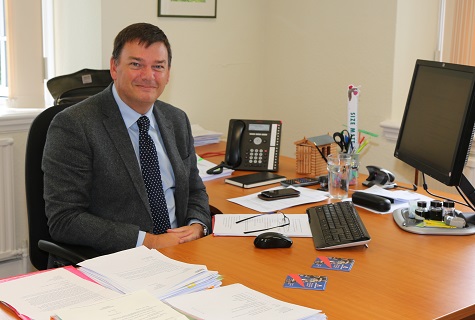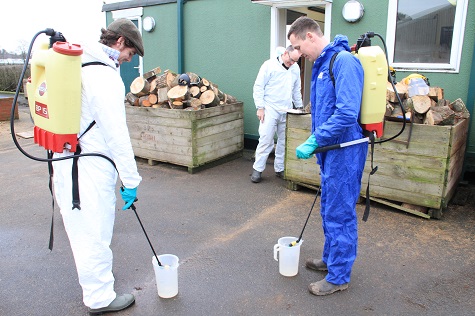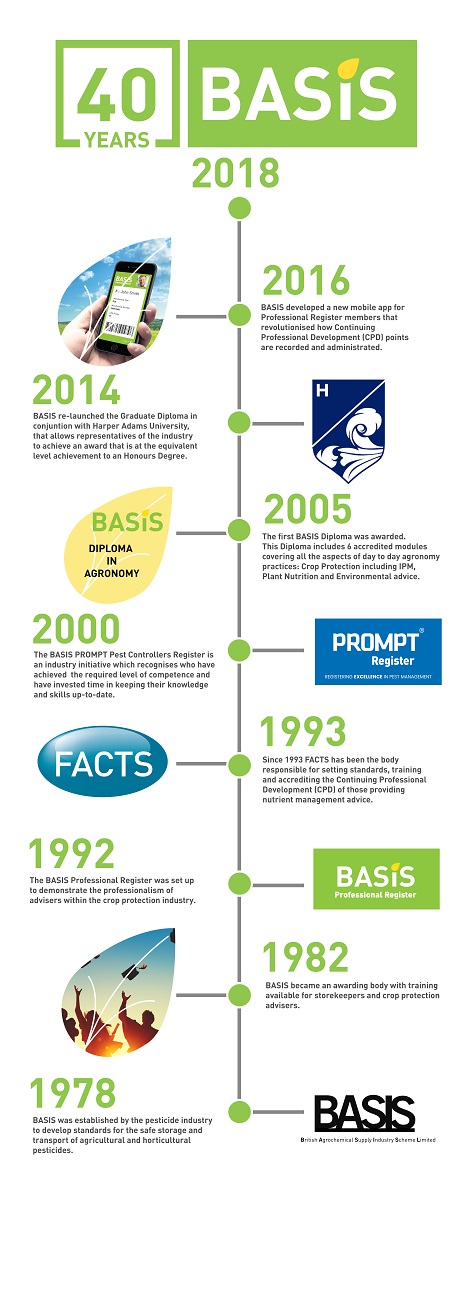BASIS Training and Certification has been an industry standard for 40 years. In that time, the BASIS Certificate in Crop Protection IPM became a statutory requirement for sellers, suppliers and advisers and has been retained in the Plant Protection Products (Sustainable Use) Regulations 2012.
I myself qualified back in 1997 and I’m currently able to advise on the use of pesticide protective products as a member of the BASIS Register (AR/E/ 0445/A). I also hold relevant PA1 PA6 application certificates.
I personally believe anybody working in our industry should obtain the relevant qualifications to have a better understanding of the use of plant protection products. BASIS Registration have without doubt over the years provided a comprehensive education programme to ensure practitioners are adequately qualified to do their jobs.
A recent trip to BASIS HQ in Ashbourne enabled me to catch up with their chief executive officer, Stephen Jacobs, to catch up with what they have been doing to celebrate their 40th year and what new qualifications are on offer.

Stephen Jacob
What does BASIS stand for?
BASIS is an independent education, training and auditing charity operating in the agriculture, horticulture, amenity and pest control industries. It currently has over 11,000 members who work and require relevant qualifications to undertake their roles and responsibilities.
How long has BASIS been in existence and where are they based?
This is our fortieth year, having been established in 1978. We are based in Ashbourne, Derbyshire, but have a national reach with training providers across the United Kingdom.
What services do they offer the amenity and agriculture industry?
BASIS is an independent standards setting and auditing organisation for the pesticide, fertiliser and allied industries. We are a registered charity (No. 1077006) and a company limited by guarantee registered in England (No. 1365343)
BASIS also aims to help individuals and companies meet legal, regulatory and best practice standards by offering a range of services including:
- Education and Training from new entrant level to advisers involved in the sale and supply of pesticides and fertiliser
- Professional Development via the BASIS Amenity Training Register
- Pesticide Store Audits
- Amenity Assured and Lawn Assured auditing
What is your role at BASIS and how long have you been associated with the company?
My association with BASIS goes back to 1998 when I was working in a seed production management role for a multinational (Monsanto) and as part of my professional development I became BASIS and FACTS qualified.
Following a career in seed production and farm business consultancy I joined BASIS in 2011 as their business development manager and subsequently became CEO in 2015. As CEO my role is very much one of leadership that also entails being ultimately responsible for all day-to-day management decisions and for implementing the organisation’s long and short term plans. I also communicate on behalf of the organisation with employees, government authorities, other stakeholders and the public.
BASIS runs ten distinct schemes, and each includes a variety of resources and opportunities in a range of sectors. Tell me about those.
Your readers can find out all about the schemes on our website. BASIS courses are accredited through Harper Adams University and build towards the BASIS Diploma in Agronomy and ultimately the Harper Adams University Graduate Diploma in Agronomy with Environmental Management at Honours degree level. This is quite an achievement for many agronomists and represents a lifetime academic achievement.
Successful candidates can graduate at a Harper Adams University Graduation Ceremony. Almost 250 agronomists have achieved the BASIS Diploma and are eligible to go on to gain the Harper Adams University Graduate Diploma if they take a further Advanced Module / Certificate.
We continue to offer a variety of certificates of competence and short courses across the UK through our national network of BASIS Approved Trainers. New courses in crop protection and environmental management are being developed constantly in line with industry innovation to enable a wider range of skills and agronomic expertise to be recognised.
Many of the schemes are centered around the safe use of pesticides do you see this as an important role for BASIS?
Promoting and encouraging the safe and sustainable use of pesticides through training and professional development is an important role for BASIS and at all times we advocate the use of pesticides within an integrated programme. Pesticides are used in IPM programs when no effective alternatives are available - or alternatives are not sufficient to keep pest, weed or disease populations from reaching damaging levels. The emphasis is to maximise the benefits and advantages that pesticides offer while minimising any potential risks.

Sprayer training
What new schemes are you running?
Our digital transformation project is all absorbing at the moment as we look at ways to improve administrative efficiency and customer benefits and services. Additionally, the formation of a new membership committee with representation from all the sectors that we support is an exciting and rewarding new initiative. This will involve setting up a new committee of 11 people from all aspects of our industry, advisors, store keepers, managers, educationists, etc to meet and feedback relevant information regarding needs and expectations of the industry. This then will allow us to redefine our training programmes and qualifications to meet our industry needs.
I believe it is the 40th Year of BASIS - do you have any plans to celebrate this ?
We are taking the opportunity for a little reflection, but in the main we are focusing on what we wish to achieve in the coming years. We will also be appointing a new chief operating officer to oversee and manage the schemes, which will in turn free me up to allow me to develop and seek new business opportunities and liaise with our partners.
Where do you see BASIS in the coming years?
Continuing to play a pivotal role in supporting the amenity (sports turf) sector by offering a range of certificates suitable for the professional development of greenkeepers and groundsmen.
We are excited about our new conservation management qualifications we are launching. Working closely with the STRI we have a great potential to help many golf courses realise their true potential to develop and conserve their wildlife and flora habitats on their courses. This programme can be also run out to universities, schools and colleges.
We always aim to keep up with industry demands, and this means regularly creating, updating and launching new training courses. So as soil quality and biodiversity management become an increasingly essential aspect of farming, we’ll be launching two new courses to help equip candidates with the skills and knowledge they need to help enhance farm sustainability.
In early 2019 BASIS is set to launch two brand new qualifications that will arm candidates with the knowledge and skills to help manage soils for enhanced quality, biodiversity and long-term sustainability. A Foundation in Soils qualification will enable farmers and advisers to understand the relationship between physical structure, and the biological or chemical processes, that contribute to the quality of a soil.
The second qualification Quality of Soils will build on the success of existing BASIS modules, and acts as a step-up from the Foundation in Soils, giving further insight into improving the resilience of farming and amenity management systems through increased understanding of the soil ‘ecosystems’.
What challenges do you see our industry facing in the coming years?
Without doubt, the need to be more proactive and educated in the use of Pesticide Protective Products.
We also need to attract new blood into our industry and more importantly ensure they are appropriately qualified and trained to meet industry standards and able to do their jobs efficiently without risk to others.
We also need to embrace and utilise new technologies where appropriate and insure we continue to work collectively to meet government legislation on the use of pesticides.
